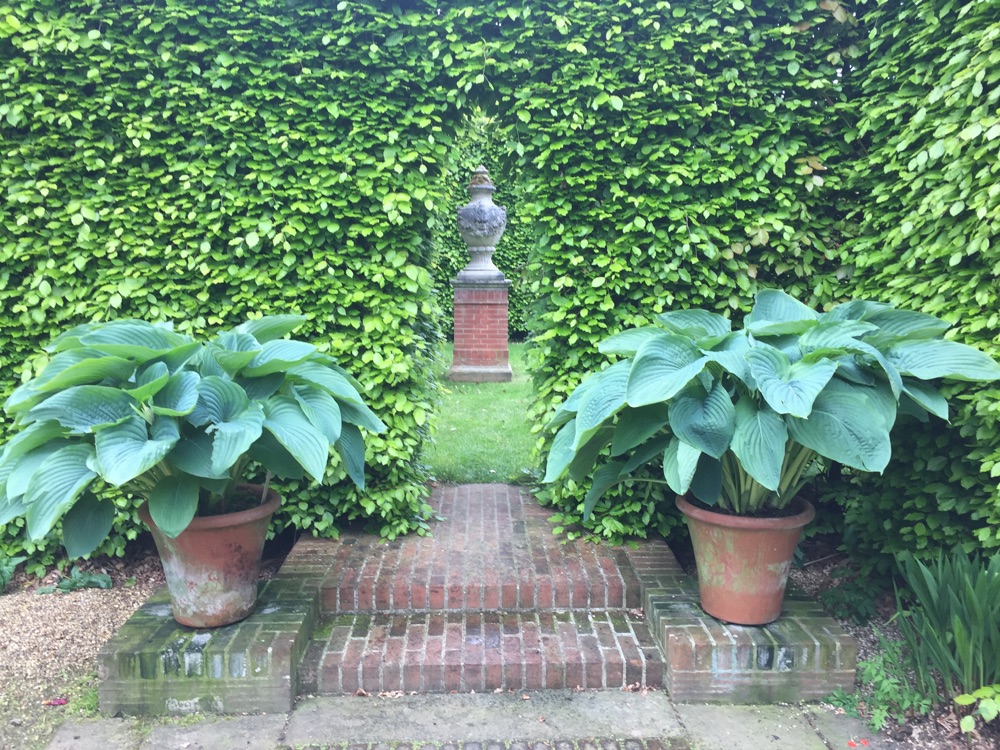In Bury St. Edmunds on a Sunday morning, the cathedral bells ring out. It is a beautiful sound. And it is the perfect fit for a stroll in the ruins of the Abbey Gardens.

Inside the cathedral, the choir and small orchestra were practising for a special service. I thought I would easily enjoy attending this cathedral, just for the music and the spectacular architecture inside. The Abbey Gardens also looked even lovelier in the light mist of the morning.
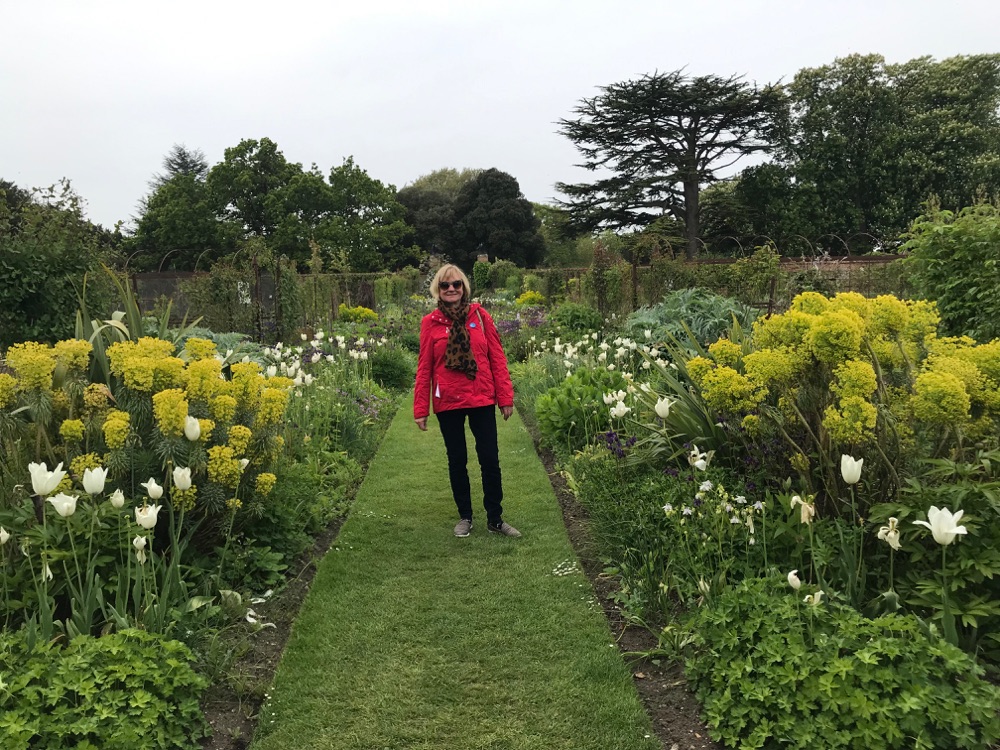
From Bury St. Edmunds, our first visit was to Hemingham Hall, the romantic, moated 16th-century grand house with draw-bridges and fabulous walled garden and deer-populated countryside all around.
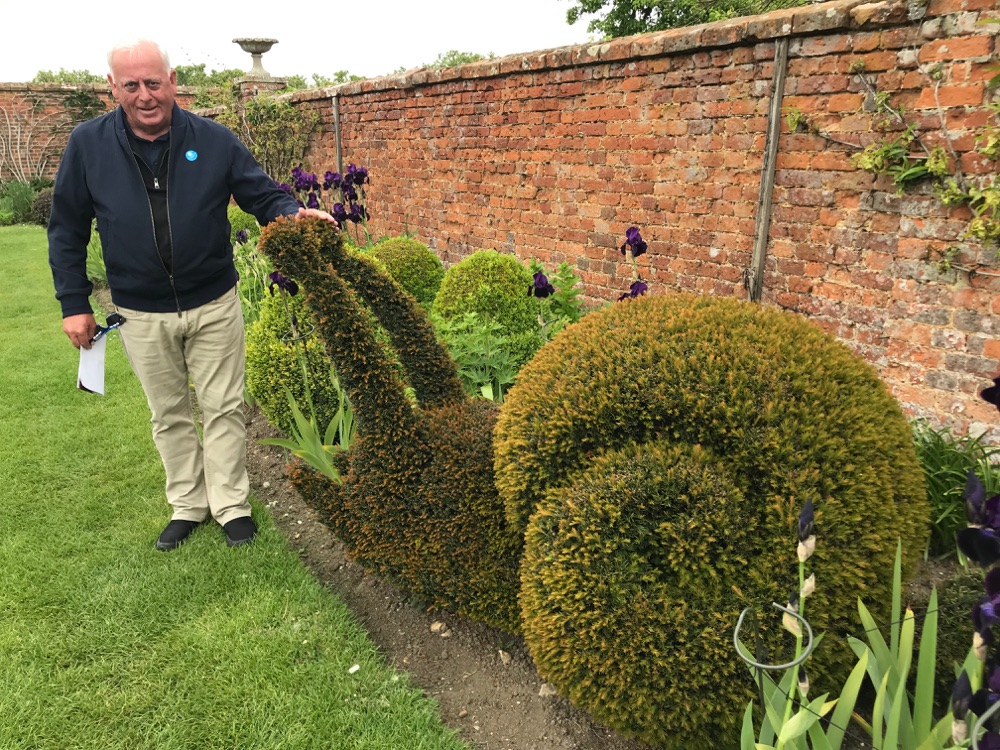
When we arrived, there was a mist hanging over the fields, turning trees dotting the landscape into mysterious, ghostly figures. It reminded me that the property had a long history, even dating back to the dates of knights and squires of the middle ages.
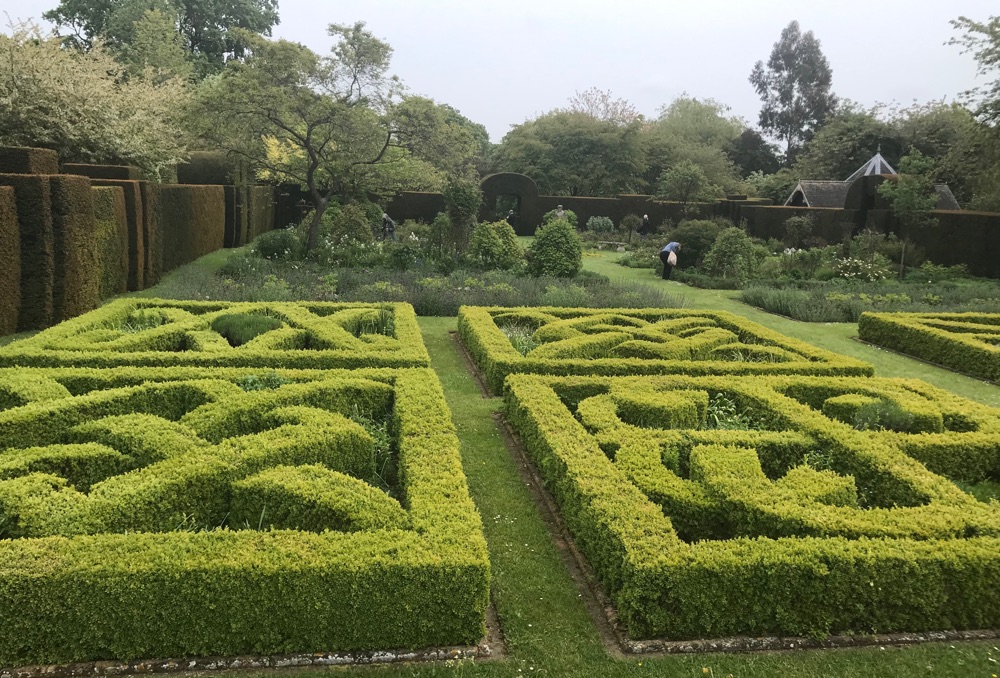
The walk to the walled garden was equally magical. We circled the house, noting the draw-bridges that are available to keep the house completely isolated and protected. We passed through iron gates and entered the walled garden. It looked amazing with its walls covered with yellow Banksia roses and long borders filled with alliums and rises.

We smiled at the cute topiaries – a snail with its eyes popping out and a robust bear in a top hat – but it was the intimacy and beautiful feeling of balanced, creatively planted, enclosed space and the strong formal lines and long, quiet stroll paths that made our time there pure pleasure.

Along the side of the walled garden, we found an intriguing yew walk, a meandering woodland path leading through a glade of old, gnarled, long-ago-planted yews, some with a massive, architectural presence.
From the walled garden, we wandered around to the front of the house where we found a second garden, one with a marvellous herb and knot garden, formal rose garden and coach garden.

After time in the cafe and a visit to the delightful gift shops in the former stables, we head out to the Norfolk coast to visit a garden I had heard great things about – East Ruston Old Vicarage, billed as a “30-acre exotic coastal garden.”
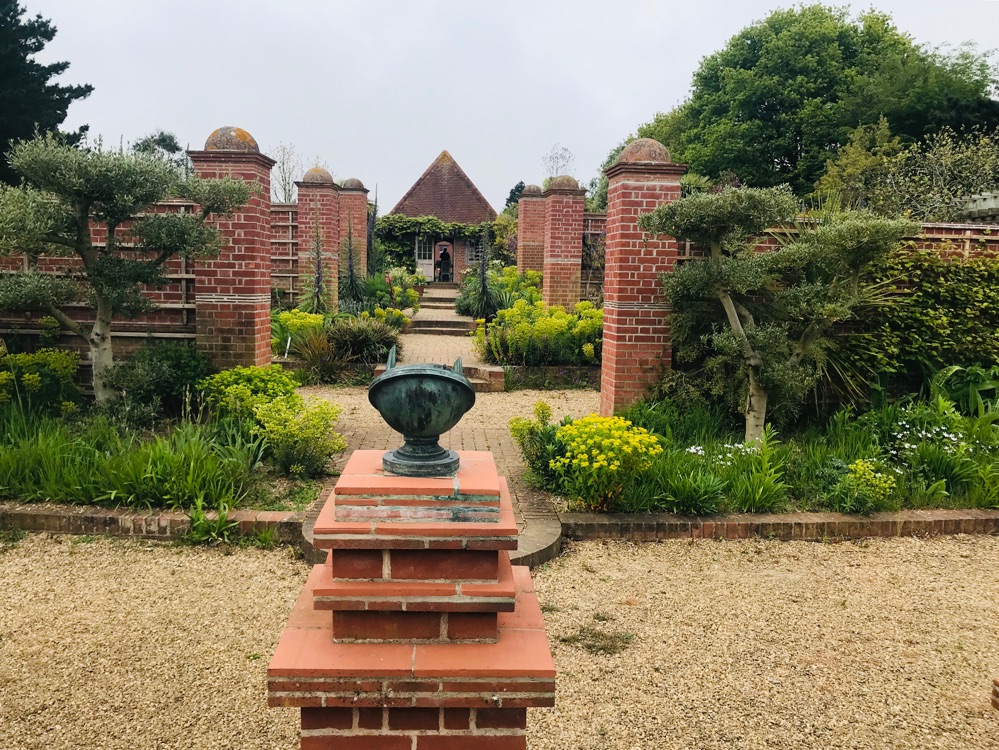
Many of us were unaware of the size of the garden and were expecting – as perhaps the name implies – a small, intimate, rustic garden with a rundown, former vicarage at its core.
What we discovered was an astonishingly diverse, large, estate garden with a seemingly never-ending variety of borders and inner gardens, quirky art installations, lovely views and walks.

We became increasingly excited as we explored this garden, noticing how it had borrowed ideas from already established great gardens like Sissinghurst and Hidcote, Kiftsgate and Great Dixter, using clipped beech and yew and boxwood to focus and frame views and vistas, benches and urns, sculptural pieces and unusual art works.
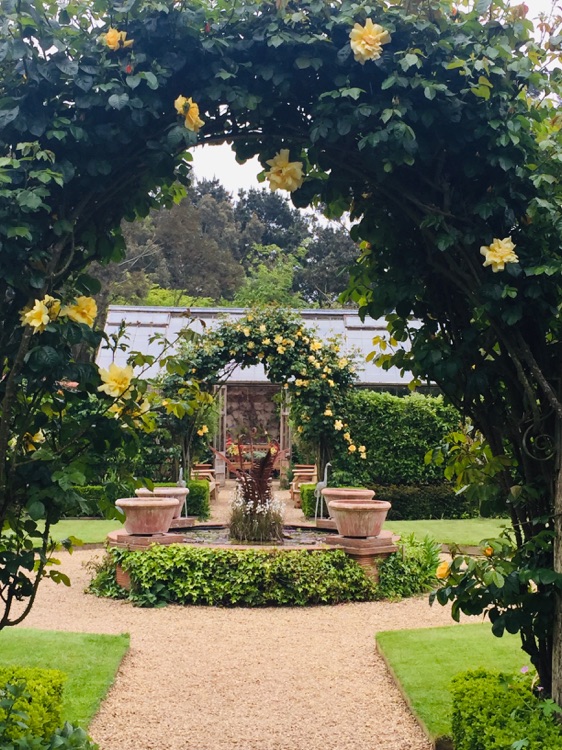
Loraine even thought at one point that this was the best garden we had ever seen, which is saying something when you consider all the gardens we have visited in France, Italy, Japan, other parts of England and around the world.

What was it that gave us that feeling that this was such a fantastic garden – it was simply the scale and confidence of the planting and the perfection of the framed views, such as the one including the distant Happisburgh church tower, or the one with the large iron gates, left partly open to bring in the countryside.
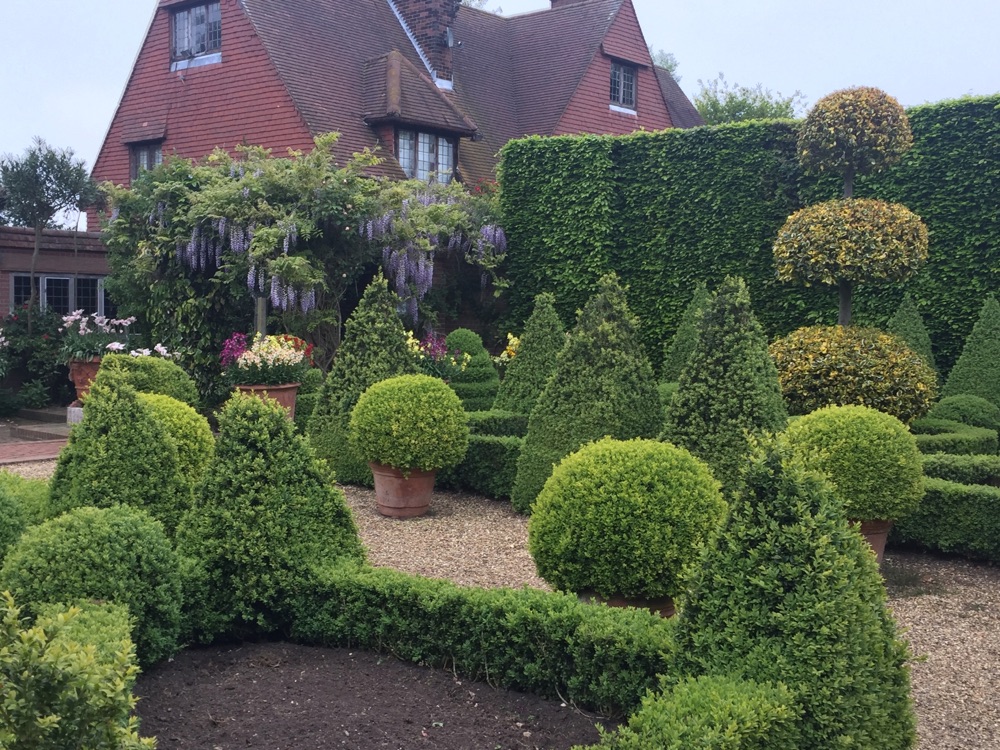
The diversity, too, made a huge impression as the garden slipped into a completely different theme at every turn – from exquisite walled garden to Desert Wash to Mediterranean Garden to the Woodland Garden, Apple Walk to Lime Walk. It went on and on. We were breathless with admiration and felt that the time it took us to reach the garden was well with the effort and investment.
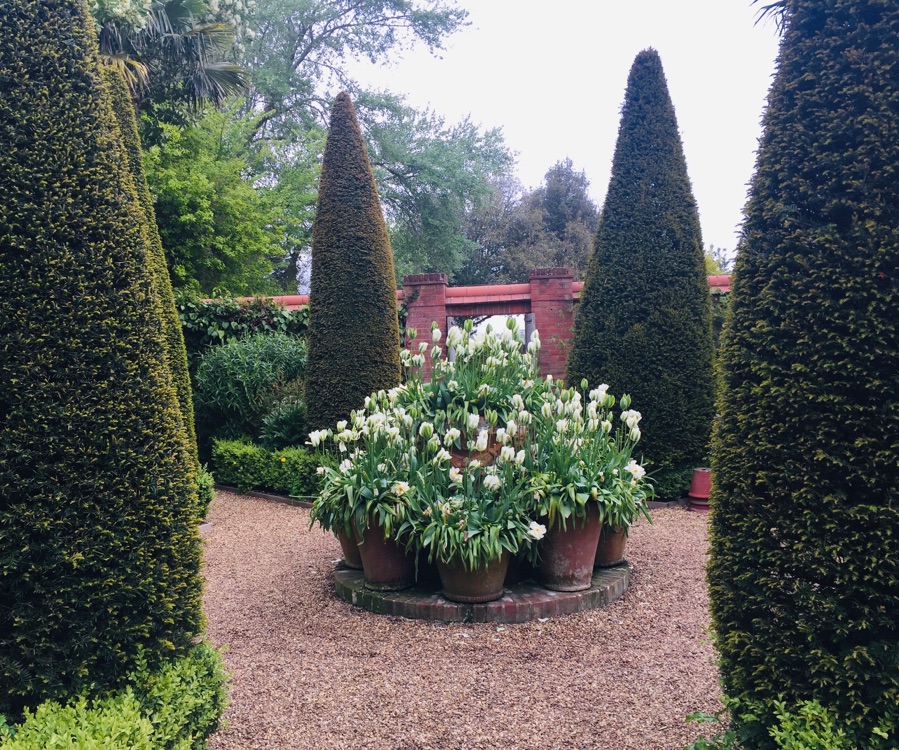
Undoubtedly, it is because the garden is so remotely located on the edge of the Norfolk Coast that it is off the well-tread tourist route. It deserves to be visited more.
The garden is not that old, the work of Alan Gray and Graham Robeson, being started in the early 1970s. It will surely rise to even great heights as times goes by and become one of England’s favourite and most famous gardens.
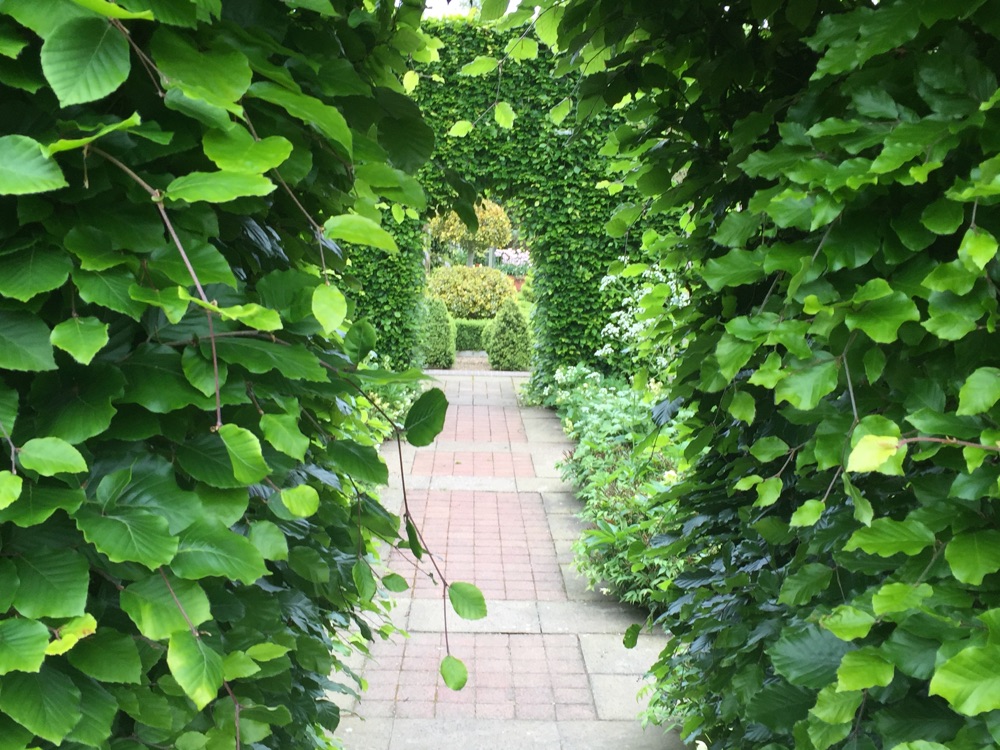
Gray is a judge at the Chelsea Flower Show and also writes a column in the East Anglia Times and has many excellent videos on YouTube.
From East Ruston, we head back to our digs at Dunston Hall outside Norwich where we relaxed with a sumptuous dinner. What a magnificent day.

